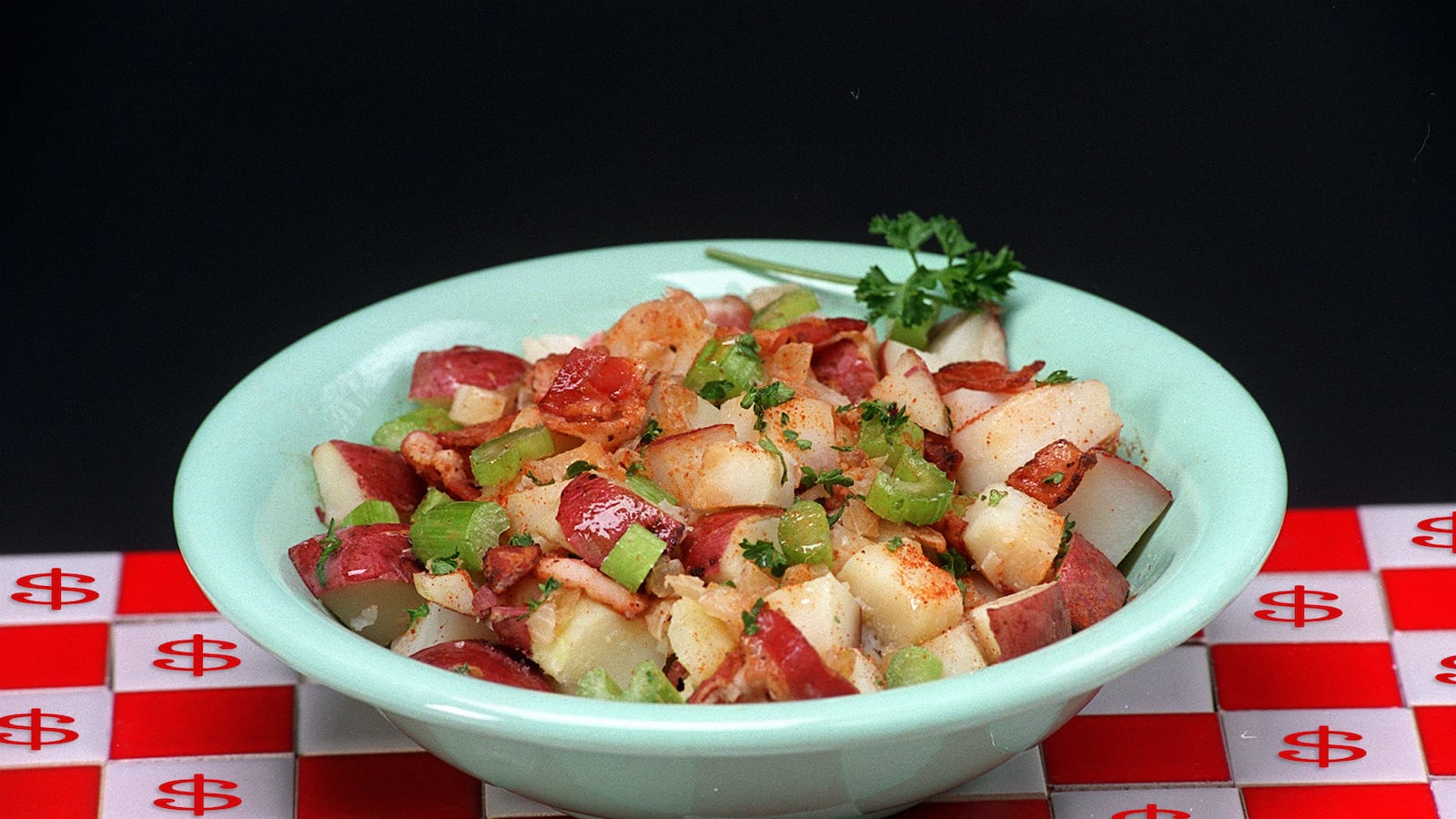Forget its summer picnic appeal. The food that has crossed the lips of almost every person familiar with crowdfunding—nay, the Internet—is potato salad.

Columbus, Ohio man Zach “Danger” Brown launched a Kickstarter to make the side dish because, well, he wanted to. The plea for funds gained traction and far exceeded his modest goal of $10—to the tune of $43,057 and rapidly growing. More than 5,000 people have donated for such rewards as a “potato salads of the world” tasting, or a name carved into one of the potatoes to be used in for the project.
Even crowdfunding champion and musician Amanda Palmer lauded the project. Though she won’t be donating herself, Palmer says that “if anybody is funding it, it’s because they are finding joy and connection in the act of funding a potato salad. Andy Warhol would be so fucking proud. So would the dadaists.”
Perusing Kickstarter’s stringent guidelines, it appears that the infamous “Potato Salad” campaign falls entirely within them, though it raises the question of what is valuable when it comes to crowdfunding.
The idea of pitching to the public dates back to 1713 in which poet Alexander Pope enlisted the help of subscribers to fund perhaps his most substantial work: a full translation of Homer’s Iliad from Greek to English. In that regard, many view crowdfunding as, primarily, a creative endeavor. But crowdfunding has also helped pay for medical treatments and necessary procedures. Through such funding, contributors can feel closer to the person they’re helping.
Master of Social Work student Theresa Sweet, who grew up in the Bay Area and lives amongst the “disruptors” of Silicon Valley, takes a sociological approach to the advent of such programs. “I think they’re still replicating a lot of power dynamics: to get the word out you and those you know have to have a lot of resources already. So if you don’t have money in the first place, you have to be super lucky to do well,” Sweet explains. “Also considering how many [campaigns] I see that are simply ‘Help me pay for necessary medical items I can’t afford myself,’ they can help demonstrate where our society is falling short with regards to services,” she says.
Indeed, it is troubling to see highly shared medical campaigns whose shares far exceed donations. A recent GoFundMe page entitled “Hannah's Fight” has over 74,000 Facebook shares, but has raised less than half of the “Potato Salad” Kickstarter. Hannah, a 1-year-old with Congenital Adrenal Hyperplasia, continues to receive treatment at a hefty cost: medication alone runs about $800 a month. Presumably, those who share the campaign are doing so with empathy in mind, though they may lack the funds to contribute more. “Hannah’s Fight” points to the difficulty of donating to worthy causes without going broke yourself.
Patreon co-founder Jack Conte says that all it takes is the right person to notice your cause. Patreon was founded in San Francisco as a means of making arts philanthropy more accessible. Artists are in constant contact with contributors, and keep them abreast of all that they’re doing—be it pre-production, new content, or events.
Still, even Patreon is not without problems. Though there are few who abuse the site, some of the errors are glaring. Conte recently had to remove a page called “Jesus is creating nipples,” an explicit level of trolling that, in part, helped make him even more aware of those who may be scamming the site. “You don’t want 1,000 people to get duped,” Conte says. “Even if 4,000 people want to buy a weight-loss pill, no matter how much interest it gets, I feel like that does terrible things to a brand.”
Enter Indiegogo, whose dubious campaigns have earned it ire from creators and backers alike. Programs ranging from meditation exercises to dance routines and plate portions have all generated revenue on the site that, unlike the hyper-popular Kickstarter, still allows creators to collect funds in the face of their failed attempt. Indiegogo takes an almost free-for-all approach, though they do offer discounts to nonprofits as well as backers: Nonprofits can host their fundraisers at a 25 percent discount, while backers reap the benefits of traditional donations (their contributions are all tax-deductible).
Danae Ringelmann, co-founder and chief development officer at Indiegogo, says that the site was born more “out of a mutual frustration between myself, [co-founders] Slava Rubin and Eric Schell, with how difficult, inefficient, and unfair the tradition process was.” In that regard, it’s not the subject of the campaign that takes precedent, but the way in which it is funded. “Indiegogo is open to campaigns in any category, whether they’re creative, cause-related or entrepreneurial,” Ringelmann explains. “Indiegogo’s community is made up of people around the world who are engaged and ready to act in order to bring their dreams to life. Whatever that dream is, we welcome it. A common thread in all campaigners is their entrepreneurial spirit and passion to fund what matters to them,” she says.
With that in mind, crowdfunding is just like any other economic system. I am certainly not donating to the potato salad Kickstarter, but that doesn’t mean you shouldn’t. After all, it’s still a free market.






